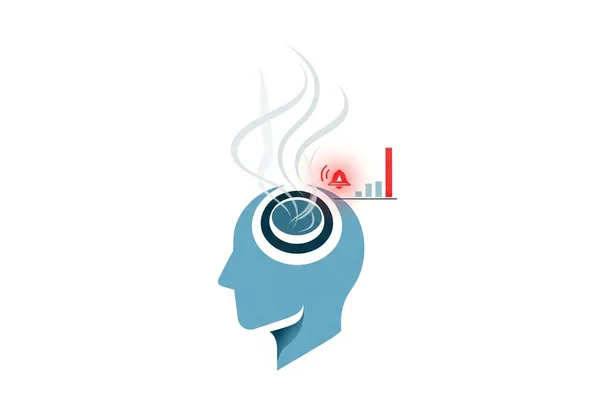精神分裂症測試結果:您的下一步支援行動
收到 精神分裂症測試 結果後,您可能會感到百感交集,並產生許多疑問。您可能會感到釋然、焦慮,或僅僅是對結果的意義感到不確定。現在我拿到這些結果該怎麼辦? 這是個自然且重要的問題。本指南將引導您理解初步的自我評估結果,並概述您或您所愛之人可能需要的關鍵後續步驟,以獲得清晰的診斷和支援。
採取初步步驟,例如使用免費且保密的自我評估,是邁向了解您心理健康狀況的勇敢且積極的一步。它提供了一個起點,一個私密的方式來探索令人困惑的經歷。如果您正在尋找一個負責任的第一步,您可以隨時在我們的首頁上 獲取初步見解。請記住,這個旅程是關於賦權,而您收集到的資訊是前進道路上的寶貴工具。

理解您的 精神分裂症測試結果
完成線上篩檢後,您的首要關注點很可能是提供的分數或摘要。為了避免不必要的擔憂或忽視,將這些結果置於正確的背景下至關重要。這不是一個終點,而是開啟您心理健康對話的開端。
您的 初步精神分裂症篩檢 分數意味著什麼
初步篩檢分數,例如我們工具基於前驅症狀問卷(Prodromal Questionnaire)提供的分數,旨在識別潛在的風險因素或早期預警信號。它量化了您在過去一個月內報告的經歷和感受,例如想法、感知或社交互動的變化。較高的分數並不意味著您被診斷為精神分裂症;相反,它表明您的經歷可能需要與醫療專業人員進行後續的討論。
您可以將其想像成煙霧警報器。它會提醒您有煙霧(潛在症狀)的存在,但無法告知您是小小的廚房意外還是更嚴重的火災。分數是一個進一步調查的信號。它幫助您整理思緒和疑慮,讓您更容易向醫生清晰地表達您的經歷。無論是為您自己還是為您所愛之人,來自 兒童精神分裂症測試 或成人版本的這些資訊,都是拼圖中寶貴的一塊。

線上 精神分裂症評估測試 的局限性
至關重要的是要理解:線上篩檢不能替代專業醫療診斷。由臨床醫生進行的專業 精神分裂症評估測試 是一個全面的過程。它包括深入的臨床訪談、個人和家族病史的回顧,以及通常需要一段時間的觀察,以排除其他疾病。精神分裂症很複雜,其症狀可能與其他心理健康問題重疊,例如躁鬱症或嚴重憂鬱症。
我們的線上工具旨在成為一個安全、匿名且便捷的第一步。它為您提供一個私密的空間,讓您在不受評判的情況下自我檢視。我們的 保密自我評估 為您提供初步資訊,賦予您力量。請將這些結果作為採取下一個、最重要步驟的基礎,而不是一個標籤:尋求專業指導。
與醫生討論 精神分裂症疑慮
與醫生討論心理健康問題可能會讓人感到卻步,但充分的準備可以使整個過程更加順暢和富有成效。掌握您的測試結果,可以為這次關鍵的談話提供一個具體的起點。
準備您的 心理健康諮詢
在預約之前,請花一些時間整理您的思緒。這種準備將幫助您感覺更有掌控感,並確保您涵蓋了所有疑慮。這是一個簡單的檢查清單,可幫助您做好準備:
-
記錄您的症狀:寫下促使您進行測試的具體經歷。記錄它們發生的頻率、持續時間,以及它們如何影響您的日常生活、工作或人際關係。
-
列出您的問題:您想知道什麼?寫下關於您的症狀、可能的診斷、治療類型或接下來的期望的問題。
-
攜帶您的結果:持有您線上篩檢的摘要,可以作為與醫生分享的有用視覺輔助工具。這表明您在積極監測您的經歷。
-
病史:準備好討論您的個人和家族病史,包括任何過去的心理健康疑慮。

與您的 醫療保健提供者 分享的內容
在您的預約期間,請盡可能開放和誠實。您的醫療保健提供者是來提供幫助的,而不是來評判的。清晰地描述您的經歷,即使它們聽起來很奇怪或難以啟齒。使用您準備好的筆記來引導談話。
解釋讓您擔憂的想法、感知或行為。例如,如果您感到對他人異常懷疑、聽到或看到別人聽不到或看不到的東西,或者難以組織您的思緒,請務必提及。您越具體,醫生就越能理解您的情況並建議正確的行動方案。這次談話是獲得正式 精神分裂症診斷測試 的第一步,如果您的醫生認為有必要的話。
尋求 精神分裂症 及其他方面的專業協助
在進行初步諮詢後,邁向清晰和獲得支援的旅程仍在繼續。這個階段涉及尋找合適的專家,並建立一個支援網絡來應對接下來的任何情況。
尋找正確的 心理健康專業人士 進行診斷
您的家醫科醫生可能會將您轉介給心理健康專家進行全面評估。您可能會見到的兩類主要專業人士是:
- 精神科醫生:專門從事心理健康的醫學博士 (MD)。他們可以診斷精神疾病、提供心理治療並開處方藥物。
- 心理學家:在心理治療和心理測試方面受過訓練的專業人士 (Ph.D. 或 Psy.D.)。他們可以通過談話療法診斷和治療精神疾病。
找到合適的對象很重要。您希望找到一位您感到自在並信任的專業人士。這位專業人士將進行徹底的評估,以確認或排除診斷,並制定個性化的治療計劃。進行 免費精神分裂症測試 是第一步;這是下一步。
在您的精神分裂症測試後建立 支援系統
心理健康不是您應該獨自走的路。無論您是擔心精神分裂症還是其他疾病,穩固的支援系統都至關重要。這個網絡包括家人、朋友和同伴,他們可以提供情感上的支持和實際的幫助。
對於扮演「關懷支持者」角色的家人和朋友來說,您的角色是無價的。建議您多了解這種疾病,無條件地傾聽,並鼓勵您的親人堅持專業護理。線上和線下的支援團體也可以讓您與有相似經歷的人聯繫,提供社群感和共同的理解。如果您是擔心孩子的父母,從 青少年精神分裂症測試 開始,可以為提供這種至關重要的支援打開大門。

您的精神分裂症自我評估後旅程:掌握控制權
收到您的初步 精神分裂症測試 結果是一個關鍵時刻。它標誌著從擔憂和不確定性轉向積極參與您的心理健康。您已經採取了勇敢的第一步。關鍵在於將這些資訊視為採取行動的催化劑,而不是最終的定論。
通過了解結果的意義、準備與醫生溝通,以及知道如何尋求進一步幫助,您正在掌控您的身心健康。前進的道路涉及專業諮詢、建立支援系統,以及利用您可獲得的資源。
如果您尚未進行自我評估,或希望回顧您的經歷,我們邀請您在我們安全、保密的平台上 開始您的評估。與任何可能覺得有幫助的人分享這篇文章——請記住,在這個旅程中邁出的每一步都是力量的象徵。
關於精神分裂症測試結果的常見問題解答
如何從這個測試中判斷我是否患有精神分裂症?
線上測試無法判斷您是否患有精神分裂症。它只能表明您是否出現了與精神分裂症或其他精神病性障礙相關的症狀。正式診斷只能由合格的醫療保健專業人員(如精神科醫生)在進行全面的臨床評估後做出。請將我們 線上精神分裂症測試 的結果作為與醫生討論的起點。
除了線上測驗,還有哪些測試可以確診精神分裂症?
沒有單一的血液檢查或腦部掃描可以診斷精神分裂症。精神科醫生會通過一個過程來確認診斷,包括詳細的精神評估以評估症狀、審查您的個人和病史,以及排除可能引起症狀的其他醫療或精神疾病,例如躁鬱症或物質濫用。
精神分裂症可以完全康復嗎?
雖然精神分裂症是一種慢性疾病,但顯著的康復是可能的。通過有效的治療,包括藥物、心理治療和強大的社會支持,許多精神分裂症患者可以過上充實且有生產力的生活。「康復」的定義是個人化的,通常側重於症狀管理、實現個人目標和維持良好的生活品質。
輕度精神分裂症是什麼樣的?
「輕度精神分裂症」這個詞可能具有誤導性,但有些人可能經歷較輕微或較少的症狀。這可能包括微妙的社交退縮、非完全妄想性的奇特信念,或偶爾的感知障礙。通常,這些被描述為「前驅」或早期跡象。由專業人士評估這些症狀至關重要,因為早期干預可以顯著改善長期預後。
免責聲明:本網站提供基於前驅症狀問卷的初步自我評估工具。它不是診斷工具。提供的信息和結果僅供教育和參考之用,不應被視為專業醫療建議、診斷或治療的替代品。對於您可能對任何疾病提出的任何問題,請務必尋求您的醫生或其他合格健康提供者的建議。切勿因在本網站上閱讀的內容而忽視專業醫療建議或延誤就醫。